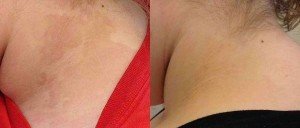
FUNGAL INFECTION
FUNGAL INFECTION
A fungus is a tiny organism, such as mold or mildew. Fungi are everywhere — in the air and water and on the human body. About half of fungi are harmful. If one of the harmful fungi lands on your skin, it can cause a fungal infection. You may develop a rash or feel itchy. Anyone can develop a fungal rash. Superficial infections of the skin and nails are cited as the most common form of infection, affecting up to 20-25% of the world’s population at any given time. The rash can appear anywhere on the body, including the nails. It’s more common in areas with skin folds, such as the groin, buttocks or thighs.
CAUSES OF FUNGAL INFECTION
When your skin comes into contact with a harmful fungus, the infection can cause the rash to appear. Rashes often pass from person to person or from animal to person by direct contact. A fungal rash is often red and itches or burns. You may have red, swollen bumps like pimples or scaly, flaky patches.
TYPES OF FUNGAL INFECTION
The medical name for a fungal skin infection is Tinea. Types of fungal infections include:
- Athlete’s foot (tinea pedis): The most common type of fungal infection, this condition often spreads when people walk barefoot. The skin between your toes turns white and starts to peel. Athlete’s foot can also affect the soles (bottoms) of the feet.
- Nail fungus (onychomycosis): This infection is a common foot problem. It usually affects the toenails, which become yellow and thick and break easily.
- Jock itch (tinea cruris): A rash of the groin area, jock itch affects more men than women.
- Scalp ringworm (tinea capitis): This rash occurs mostly in children. It causes hair loss, but with the right treatment, the hair usually grows back.
- Ringworm (tinea corporis): Tinea, or ringworm, is an organism that may cause fungal infection on the scalp, fungal infections on the face, or infections on other areas of the body. Ringworm creates a characteristic fungal infection skin rash that is circular, raised, red, and itchy. People usually pick up ringworm from other people, pets, or contaminated items that carry the organism.
TREATMENTS
Treatment for skin fungus includes:
- Antifungal creams, many of which are available over-the-counter.
- Stronger prescription medications, which may work faster.
- Oral medicines, if the fungal infection is severe.
Make an Appointment
For appointment or any question contact us to make an appointment with Surat leading dermatologist Dr Mahendra Vaghasiya. Equipped with many years of experience in treating FUNGAL INFECTION patients, he will evaluate your individual skin condition and discuss the treatment options with you. You may also send an email by filling Enquiry form at https://shrihariskin.com/contact and our team will respond to your questions or appointment request as soon as possible.

